Workplace hygiene is essential for employee health, productivity, and the company’s image. Regardless of the type of environment – offices, factories, pharmacies, airports, or shopping centers – thorough cleaning forms the foundation for daily operations.
In this blog, we will explore what the cleaning process looks like in various facilities, as well as the knowledge that cleaners must have to perform their job effectively.
Workplace hygiene in office buildings
In offices, cleaning involves several key steps. First, work surfaces and other touchpoints are wiped down with special cleaning agents to remove dirt, followed by disinfection. This is crucial for eliminating bacteria that can accumulate on computers, phones, copiers, and other devices.
Cleaners also must vacuum and mop the floors, paying special attention to areas around chairs and desks where dust often gathers.
Periodically, they also clean glass surfaces: windows and ledges, as well as glass partitions and doors in modern office interiors.
Aside from physical cleaning, it’s important to maintain organization in the workspace. Upon client request, hygiene staff can assist in sorting documents and ensuring that all surfaces are free of clutter.
This makes it easier to maintain order and creates a better, more organized work atmosphere. It helps employees stay focused and engaged, especially in so-called open offices. Where collaboration is closer and interactions are more frequent.
Factories and other industrial facilities
Factories require a different approach to cleaning due to specific risks and requirements related to production processes. Here, hygienists must adhere to stricter rules and regulations. Especially when it comes to cleaning machines and equipment.
Basic steps include:
- preparation: ensuring that machines and other equipment are turned off before cleaning begins;
- specialized cleaning agents: using appropriate chemicals that are safe for use in industrial environments;
- thorough cleaning: if necessary, using high-pressure water pumps to remove grease and heavy dirt buildup from equipment and floors;
- compliance with safety procedures: since they may come into contact with hazardous materials, hygienists must be trained in safety procedures and wear appropriate protective equipment.
Read also: Clean food factory – A priority condition for healthy food production >>
Cleaning pharmacies
In pharmacies, hygiene is vital as medicines are stored and sold here. Some pharmacies also have laboratories, which requires hygiene staff to be particularly careful and attentive to detail.
The cleaning process in pharmacies includes:
- disinfection of work surfaces: disinfectants must be safe for use in environments where medications are stored;
- space organization: medicines must be properly stored, and cleaners can assist in maintaining order in the warehouse and on display shelves;
- versatility: hygienists must be trained for different types of surfaces and materials found in pharmacies (glass, metal, chipboard, plastic, cardboard, etc.).
Read also: Clean, cleaner, the cleanest – Neat as a pharmacy! >>
Workplace hygiene at airports and bus/train stations
Airports are very busy places, and hygiene is naturally prioritized. Therefore, cleaning teams work quickly and efficiently, often in shifts that coincide with the arrivals and departures of flights. Additionally, they care for all official areas in the airport or station building: offices, control towers, kitchens, baggage areas, etc.
The cleaning process at airports and other passenger transport stations includes:
- daily cleaning of waiting areas, check-in halls, business lounges, and salons: seats, tables, and other surfaces must be regularly maintained and disinfected;
- restrooms: cleaning restrooms at airports must be frequent due to the enormous number of passengers, and maintaining cleanliness in these areas is crucial for a positive passenger experience;
- ground transport: hygienists are also engaged in the sectors for loading and unloading luggage.
Read also: Effective cleaning of airports and stations to first-class port facilities! >>
Cleaning shopping centers
Shopping centers pose another challenge for hygienists due to the high frequency of visitors. Cleaning must be done regularly, diligently, and multiple times throughout the day, covering:
- cleaning with a brush or broom and mopping the floors, as well as machine treatment of hard floors, which is crucial for preventing slips and falls;
- disinfection: fitting rooms, doors, benches, toys and equipment in play areas, and other shared surfaces;
- paper and other waste: regularly emptying trash bins and ensuring that areas around them are clean;
- restroom hygiene.
When it comes to high-traffic locations such as shopping malls and train stations, cleaning restrooms can pose a significant challenge. Maintaining hygiene in commercial restroom facilities that serve thousands of people daily requires specialized knowledge and dedication.
Regardless of the specific type of facility, cleaners must meticulously and devotedly perform several tasks:
- clean and disinfect toilet bowls and brushes, which includes using strong disinfectants that eliminate 99.99% of bacteria and viruses;
- maintain sinks and sanitary fixtures, and clean mirrors: keeping these surfaces clean is important for preventing cross-contamination with pathogenic microorganisms and for leaving a professional and positive overall impression of the restroom;
- ensure the availability of hygiene supplies: hygienists must ensure that paper towels, toilet paper, soap, and antibacterial hand sanitizers are always available.
Read also: Maintaining hygiene in shopping malls both inside and outside – From ceiling to floor! >>
Workplace hygiene is not just an aesthetic issue!
When it comes to business spaces, the question isn’t whether they will be cleaned, but how many times a day or week. And, also, what methods, techniques, and agents will be used for this purpose.
Therefore, workplace hygiene falls not only within the domain of aesthetics of commercial interiors and exteriors but is primarily a matter of health and safety.
Because no one wants to spend time on sick leave due to the so-called sick building syndrome caused by insufficiently clean air and low overall hygiene.
Hygienists play a key role in maintaining hygiene standards in various environments and reducing the transmission of flu, COVID-19, and other respiratory infections. Their knowledge of the details of sanitization and disinfection is crucial.
They undergo specialized and lengthy training for the safe use of floor treatment machines (washing and polishing), deep-cleaning carpets and furniture. Additionally, they are trained in various cleaning techniques, compliance with all safety procedures and cleanliness standards. As well as the proper use of cleaning agents.
This knowledge and experience in their application are vital for preserving health and ensuring maximum well-being for employees and other users of the facility.
By investing in a clean and tidy environment, businesses not only minimize health risks but also increase productivity and satisfaction among everyone present.
Invekta has been wholeheartedly and responsibly assisting them for two decades. Your business facility can also become part of the group of enterprises that we professionally care for daily, in accordance with protocols and standards. Investing in comprehensive cleanliness of the workspace can never be the wrong decision.
Read also: Modernize and improve your business with software management! >>

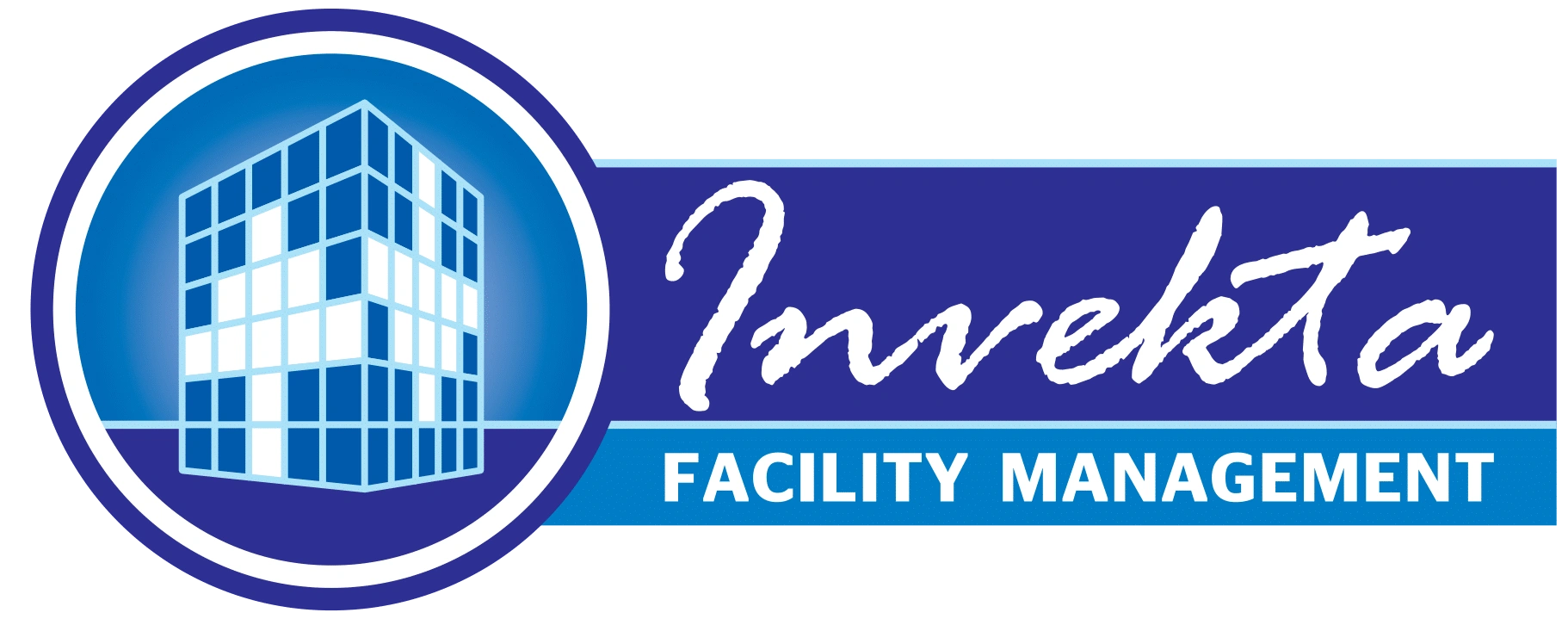
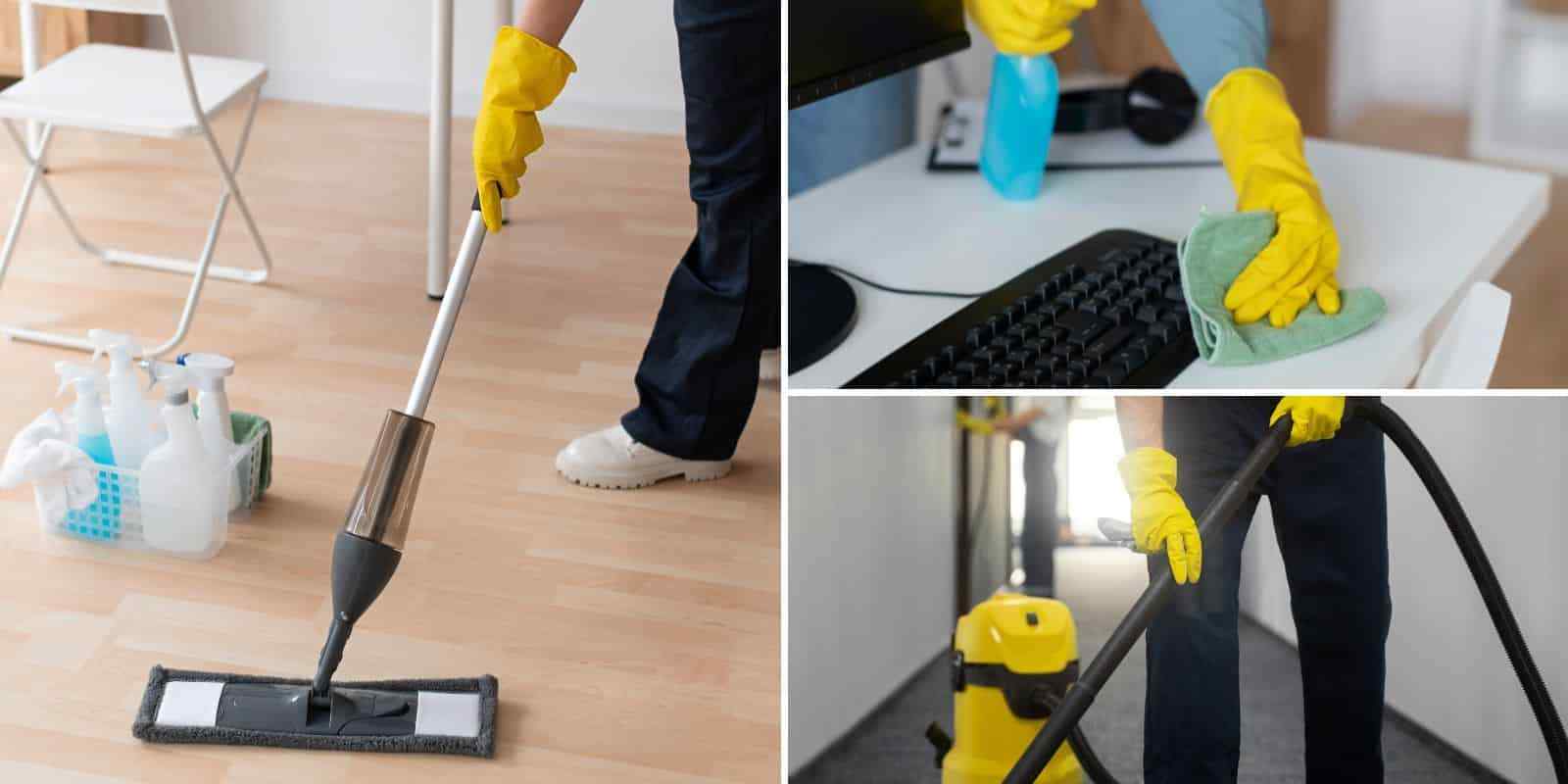
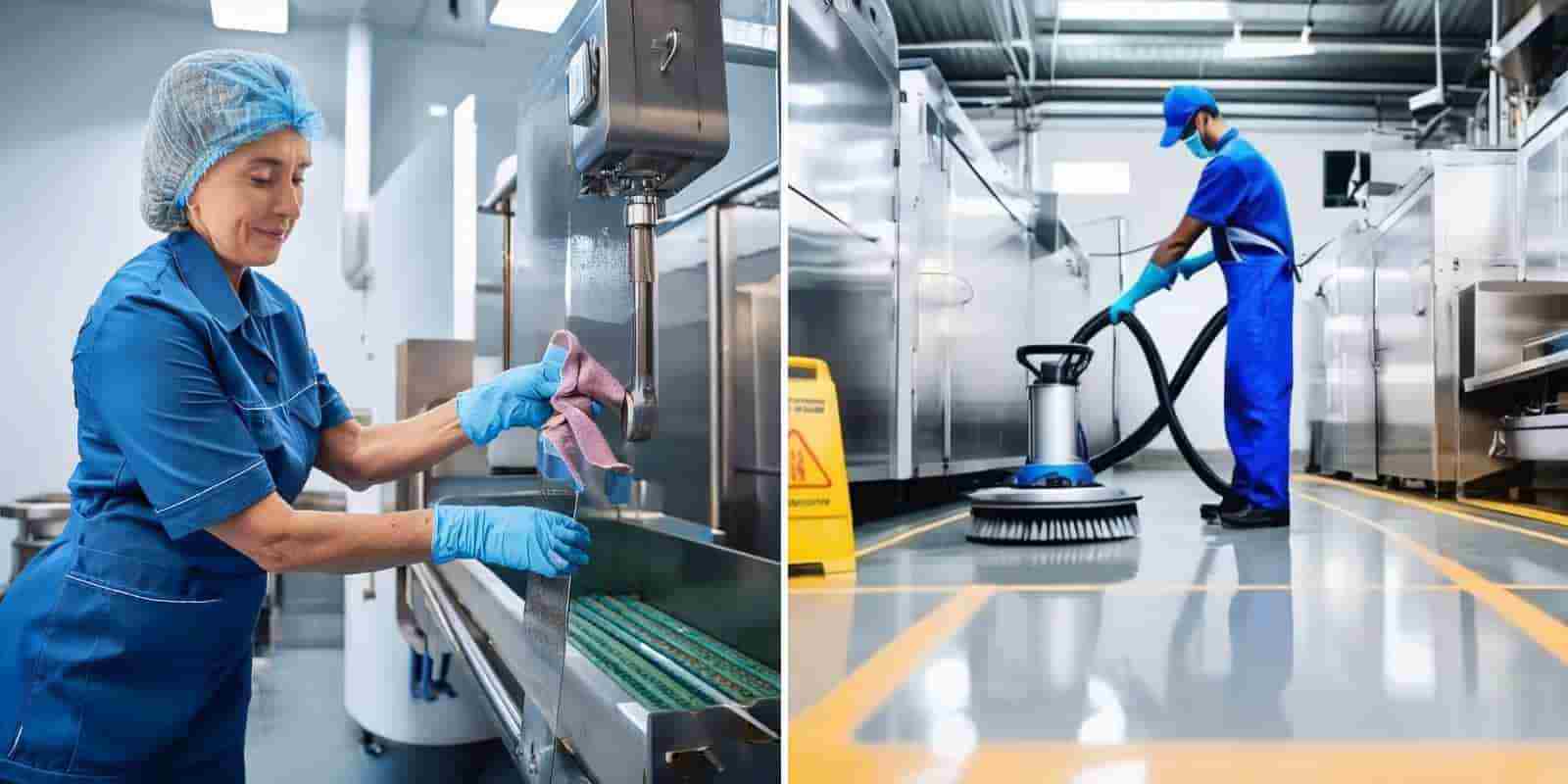
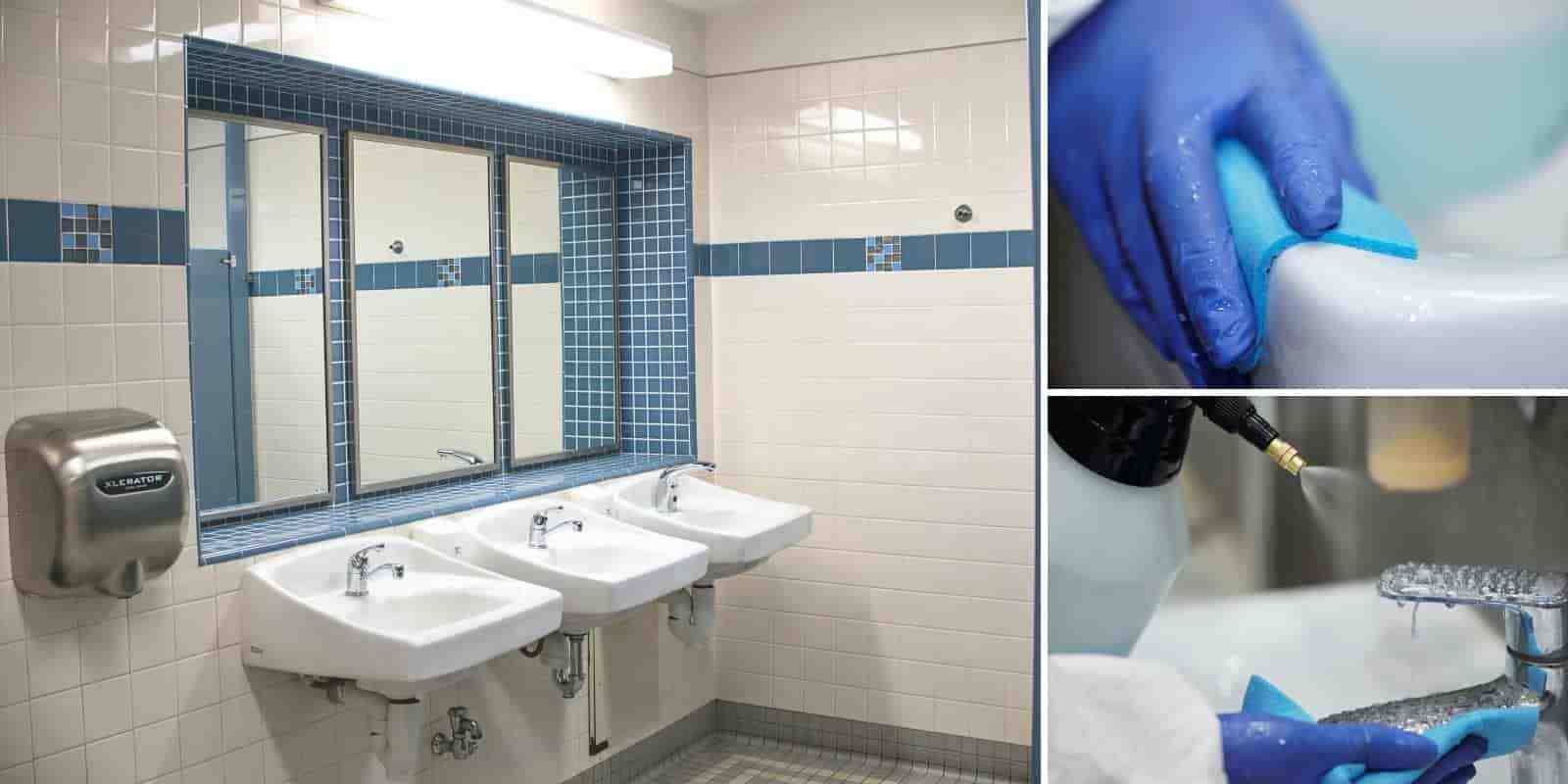

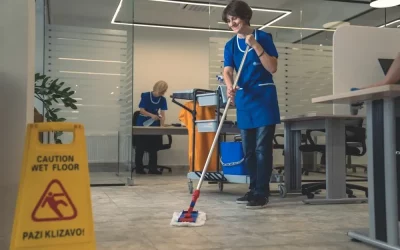
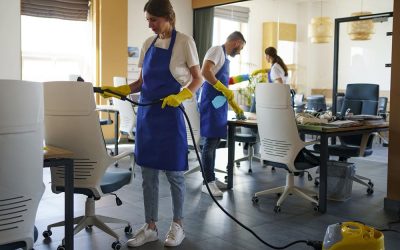

0 Comments